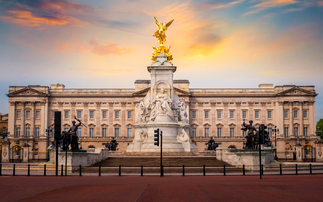The narrative suggesting Trump will run America the way you run a corporation is becoming received wisdom, but his approach has little in common with the best the global business community has to offer
Tomorrow Donald J. Trump will be inaugurated as the 45th President of the United States of the America, and a dispiriting and dangerous new era will begin.
Two and a half months on from his shock election victory there is still little agreement on what the age of Trump means and how it came about. In keeping with the divisiveness and disinformation that defines the Trump team's modus operandi, there is still no received wisdom or mainstream view on how Trump will govern.
To his many critics he remains a racist, sexist, vulgarian; a conflicted and corruptible figure pursuing a dangerous economic, military, and environmental agenda - an agenda defined by thin-skinned narcissism, grift, and ideological extremism, and masked by a shameless propensity to lie and mislead. To his supporters and post-election apologists he is a refreshingly direct, politically incorrect counter-punch to the failed economic and identity politics of the Obama era; a patriot who is willing to prioritise US economic interests, tackle the worst excesses of globalisation, and push back against the liberal elite's obsession with esoteric concepts such as environmentalism and equality.
These two tribes have little common ground, but there appears to be one lens for viewing the Trump Presidency that both supporters and opponents are prepared to share: namely, the idea that he will be the 'Business President'. Across the political spectrum Trump is being described as the 'President CEO', the 'dealmaker in chief', a 'pragmatic businessman', and a leader who, in the words of Michael Gove's obsequious profile, 'intends to govern by spreadsheet'.
Inevitably, there is still huge disagreement as to what this characterisation means. Fans of Trumpism believe having a businessman in the Oval Office will deliver the efficiency and hard-edged negotiating acumen the US needs, while critics are happy to see Trump associated with the worst excesses of the CEO class: the opaque finances, the hostility towards our shared environment, the conspicuous consumption, and the hypocritical willingness to engage in a form of patriotism-wash, lamenting trade imbalances and low wages, while importing Chinese-made goods and paying low wages.
Trump himself is, of course, delighted with the image of president as corporate titan, knowing full well that it plays into the Master of the Universe persona and jobs promises that delivered him the White House, while also allowing him to trash critics of his commercial skills as jealous haterz.
However, as with so much of Trump's agenda, it is vitally important this narrative is challenged, not only because running a global superpower is very different from running a mid-sized real estate firm and reality TV show, but also because the new President embodies a particular and narrow type of business mentality - and it is a mentality that is increasingly alien to the world's most successful businesses and our understanding of how a prosperous and resilient modern 21st century economy operates.
Trump's decades of musings on the nature of business would not have been out of place in the 19th century, let alone the 20th. His is a corporate world where tax transparency is for the stupid, where deals typically result in one side winning and the other getting 'killed', where marketing and spin dominates all, where regulations kill jobs, and, as he revealed to Michael Gove this week, where standards designed to protect our shared habitat are 'environmental tricks' intended to stop his 'beautiful' project getting built.
His background in real estate makes him a literal embodiment of rentier capitalism. His cabinet of billionaires is of a similar ilk with much of their trumpeted business experience having been built up in the fields of Wall Street financial engineering, extractive industries, and the murky corridors of energy lobbyists.
Theirs is a milieu where regulation is invariably red tape, success is measured in quarterly results and not much else, and government is almost always an intrusion, even when it is on hand to mop up the oil spill or clean up the financial crash. It is also a world where climate risks are open to debate, clean energy is often unproven, and environmental safeguards are a socialist plot.
Donald Trump can position himself as the 'Business President' if he wants, but if he is not to do untold damage to the entrepreneurial constituency he professes to represent it needs to be understood that 'business' is not a homogenous entity. For decades (and arguably for much longer than that) there has been a tension between the idea of business as a mechanism for generating wealth for a narrow group of beneficiaries and as an engine for delivering progress for the society in which it operates. Trump appears to be firmly entrenched in the first tradition, unless you are willing to give unreasonable weight to a controversial charitable trust with a penchant for portraits of its perma-tanned founder.
The tension between these two schools of thought is particularly pronounced when businesses engage with environmental issues. Businesses and investors that regard their mission as the extraction of the maximum returns in the shortest possible time inevitably have scant regard for issues such as sustainability and long-term risk, hence the willingness to countenance all kinds of misinformation and evidence-lite conspiracy theories to justify the high risks that come with sub-prime assets or 'drill baby drill' energy projects. Those firms with a wider, purpose-driven approach and a recognition of their position as engines of global development are far more likely to respond to existential environmental risks and understand the importance of co-operation with governments and commercial rivals alike in pursuing shared interests.
Trump's victory is a victory for the dog-eat-dog, externality-offloading, polluting world of corporate short termism. But as with so much of the rest of his agenda it flies in the face of long-term trends.
The last decade or so has seen the idea of sustainable development and green business models secure an ascendancy its cheerleaders never dreamed would come so soon. This dominance has come as the evidence has stacked up to show that sustainable business models, clean technologies, and ambitious environmental goals help drive commercial success.
Consequently, the support for the Paris Agreement and the UN's Sustainable Development Goals from many of the world's largest businesses has been overwhelming. The biggest story in the energy sector in recent years has been the viability of clean energy technologies and the headwinds faced by a coal industry Trump will simply not be able to save. The world's most successful and popular business leaders are increasingly to be found not in the Trump clique, but amongst the innovative entrepreneurs working to deliver a sustainable, zero carbon economy.
The Davos Summit has attracted plenty of snark this week - much of it justified - as commentators have lined up to observe the disconnect between this global corporate elite and the populist dominance of Trump and Putin. But many of the CEOs present continue to represent companies that are hugely popular, if not populist. Theirs are often the businesses that are delivering many of the jobs Trump seeks to take credit for and investing in the technologies that will determine whether or not our economy will cope with the climate risks that come with a century defined to date by 16 of the 17 hottest years on record. They are far from perfect, and some of them are still too keen to regard marketing greenwash as transformational programmes. But they have a vision for the 21st century that is diametrically opposed to that promised by President Trump - a vision based on clean tech innovation, climate resilience, and rising prosperity for all.
One of the most informative charts shared at Davos shows the top 10 companies by market capitalisation last year compared to the top 10 in 2006. A decade ago this list was dominated by energy companies and banks, now it is technology firms that are to the fore, each of them replete with ambitious and long term environmental strategies. Apple tops the list, followed by Google parent Alphabet, Microsoft, and Berkshire Hathaway. Exxon Mobil comes next, but then it is back to companies with a serious interest in the low carbon transition, including Amazon, Facebook, Johnson & Johnson, and General Electric.
These are the world's 10 biggest corporate giants https://t.co/JYdYZVeh5d #wef17 pic.twitter.com/m9iE4VvIaZ
— World Economic Forum (@wef) January 17, 2017
As an essential recent article from US environmental commentator Alex Steffen argues this low carbon transition and the carbon bubble it is likely to result in as clean technologies mature and fossil fuels are sidelined is the critical factor in understanding a Trump cabinet "custom built to protect carbon industry investors". Trump's administration of high carbon interests and his cosying up to Putin represents a desperate (and hopefully last-ditch) attempt to keep the carbon bubble inflated. The primary goal of the many progressive businesses and investors who have so little in common with Trump is the safe deflation of that bubble and the successful transition to a sustainable, prosperous, and resilient global economy.
Trump could yet wreak untold damage to the global climate change and environmental agenda, but he will not do so as the uncontested emissary of business, no matter how hard he tries to occupy that role. Green and progressive firms need to fight the idea that he is their representative every step of the way, just as they need to now redouble their efforts to compensate for the damage his pollutocrat administration is planning.
They will be wary of doing so, knowing full well a single petulant tweet can knock billions off their valuations. But when Trump says he is torching environmental regulations or axing climate funds to aid US businesses, many of those firms will need to find the nerve to say the President is not acting for them. He may be the first 'Business President', but he is likely to be very bad for the business community.








